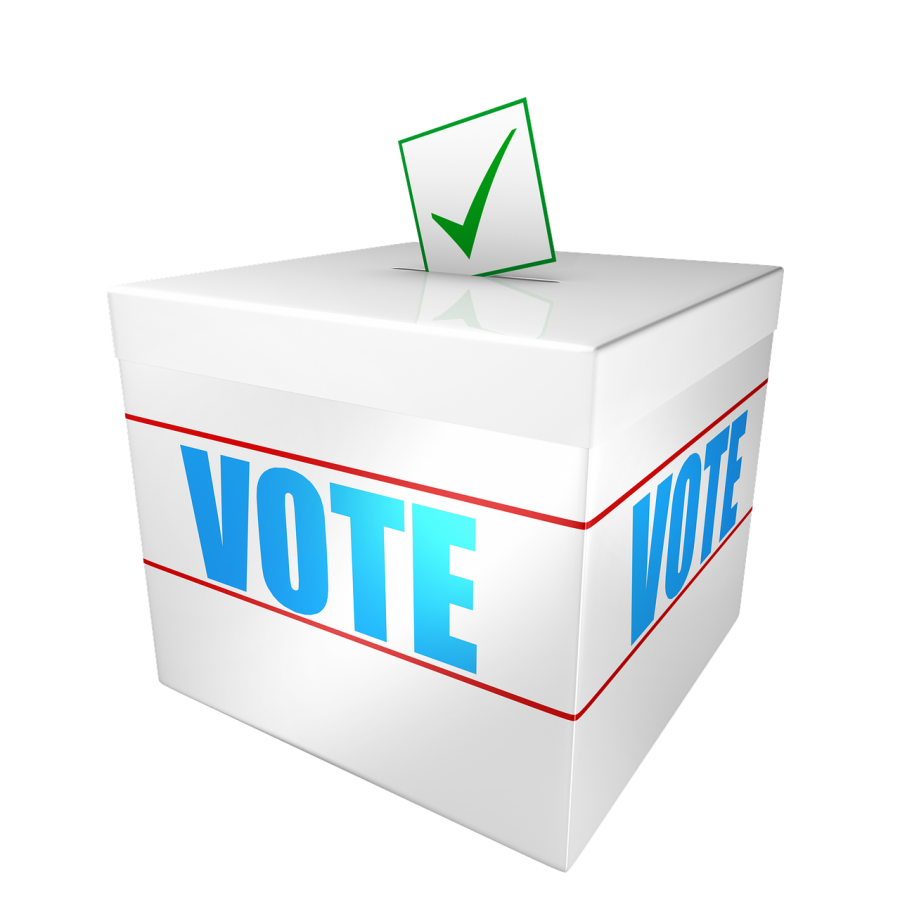California Votes on Key State Propositions
Californians voted on 12 state propositions during the 2020 elections. The Menlo community discussed four of these propositions during an exercise in civil discourse leading up to the election. Creative Commons photo: Account #472301 on Pixabay.
November 19, 2020
On Election Day, millions of Californians voted for candidates in a variety of elections; however, the state of California also voted on 12 state propositions, and the ones that passed will have fiscal and social ramifications for years to come.
The Upper School’s advocacy groups held discussions on Thursday, Oct. 29, where students had a chance to practice civil discourse through discussing Propositions 16, 18, 20 and 22. This was followed by an assembly on engaging in the political process on Monday, Nov. 2, after which students were emailed forms to “vote” on the presidential election and these propositions in a Menlo mock election.
Californians have since voted in the real 2020 elections, and The Associated Press has projected the results for all four of these propositions despite not having all votes counted.
Proposition 16 did not pass, with 57.2% of California voters voting no on the attempt to reinstate affirmative action in public agencies across the state. Proponents of this proposition spent over $8 million in advertising, arguing that reinstating affirmative action would increase equal access for minority groups, such as Latino and Black Californians. It was supported by high-profile Democrats such as Vice President-elect Kamala Harris and Rep. Nancy Pelosi (D-CA).
Nonetheless, Californians rejected the effort to add affirmative action, remaining one of nine states in the nation with a ban on affirmative action. It will remain illegal for the state to consider race, religion or national origin in decision making, most notably around school and job applications.
Proposition 18 did not pass, with 56% of voters rejecting a proposition to amend the California Constitution to allow 17-year-olds to vote in primary elections if they would be 18 years old by the time of the general election. Even with proponents arguing that involving teenagers in a full election cycle would benefit democracy, voters sided with the argument that 17-year-olds are not experienced enough or fiscally responsible enough to vote.
Proposition 20 also did not pass, with 61.8% of voters disagreeing with this push for stricter prison sentencing. This proposition aimed to classify certain theft and fraud crimes as felonies as opposed to misdemeanors, as they are currently classified, which proponents of the bill argued would close loopholes that shield felons from their proper punishments.
Opponents of the proposition convinced enough voters that this change would cost taxpayers millions of unnecessary dollars simply to roll back decades of prison reforms the state has made. Opponents also argued that the proposition would result in extreme sentences for petty crimes and disproportionately harm vulnerable minorities.
Proposition 22 passed, with 58.7% of voters choosing to continue allowing app-based driving companies such as Uber, Lyft and DoorDash to classify their drivers as contractors rather than employees. This decision is a victory for these companies and many of their drivers, who believe that giving drivers the freedom to choose when and where to work gives them much-needed flexibility in their schedule.
The classification of drivers as contractors also permits the companies to give less benefits to drivers, which was touted by proponents of the bill as conducive to the success of the companies, while opponents argued that drivers deserve the same workplace benefits as employees of other industries.



